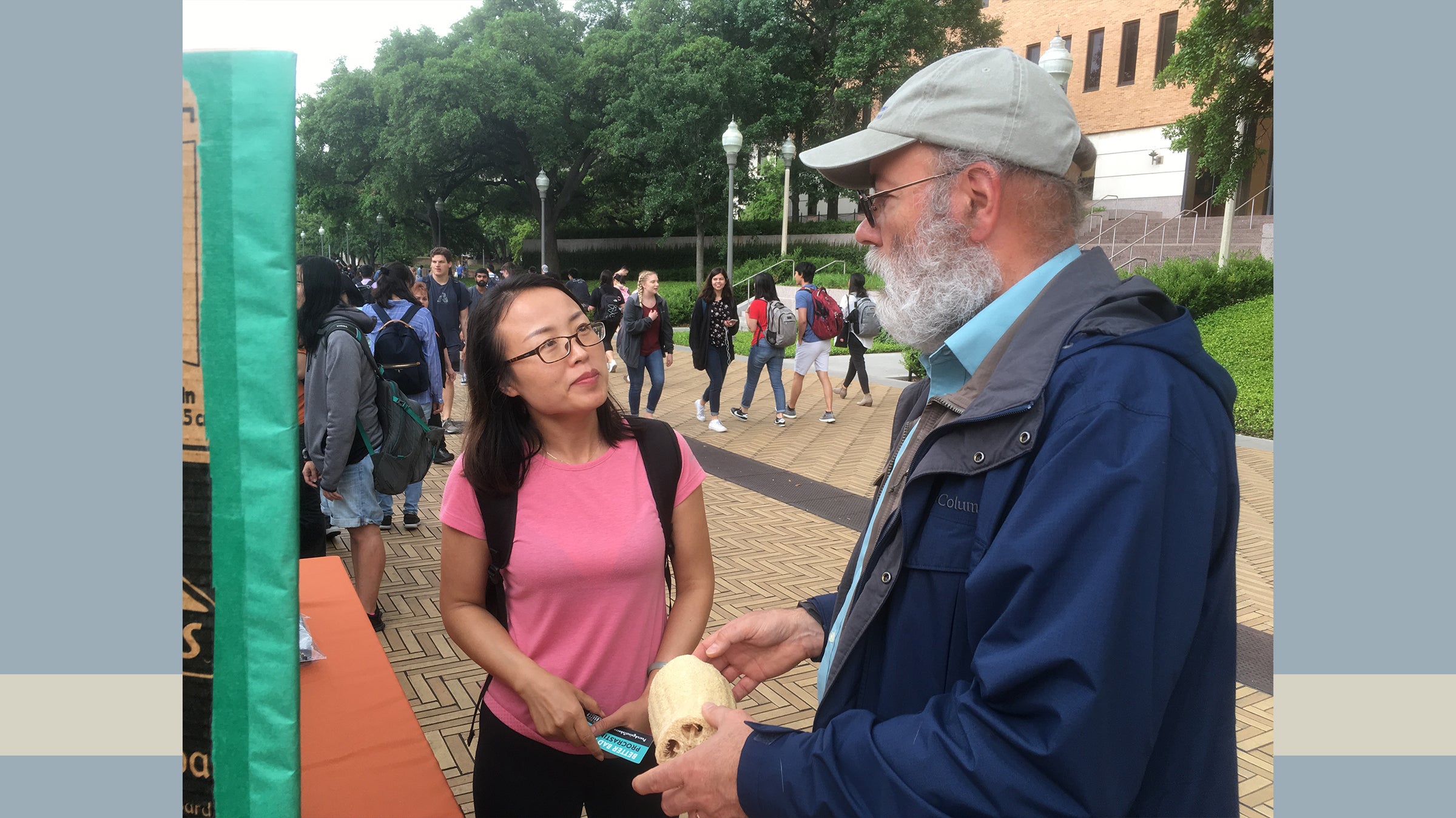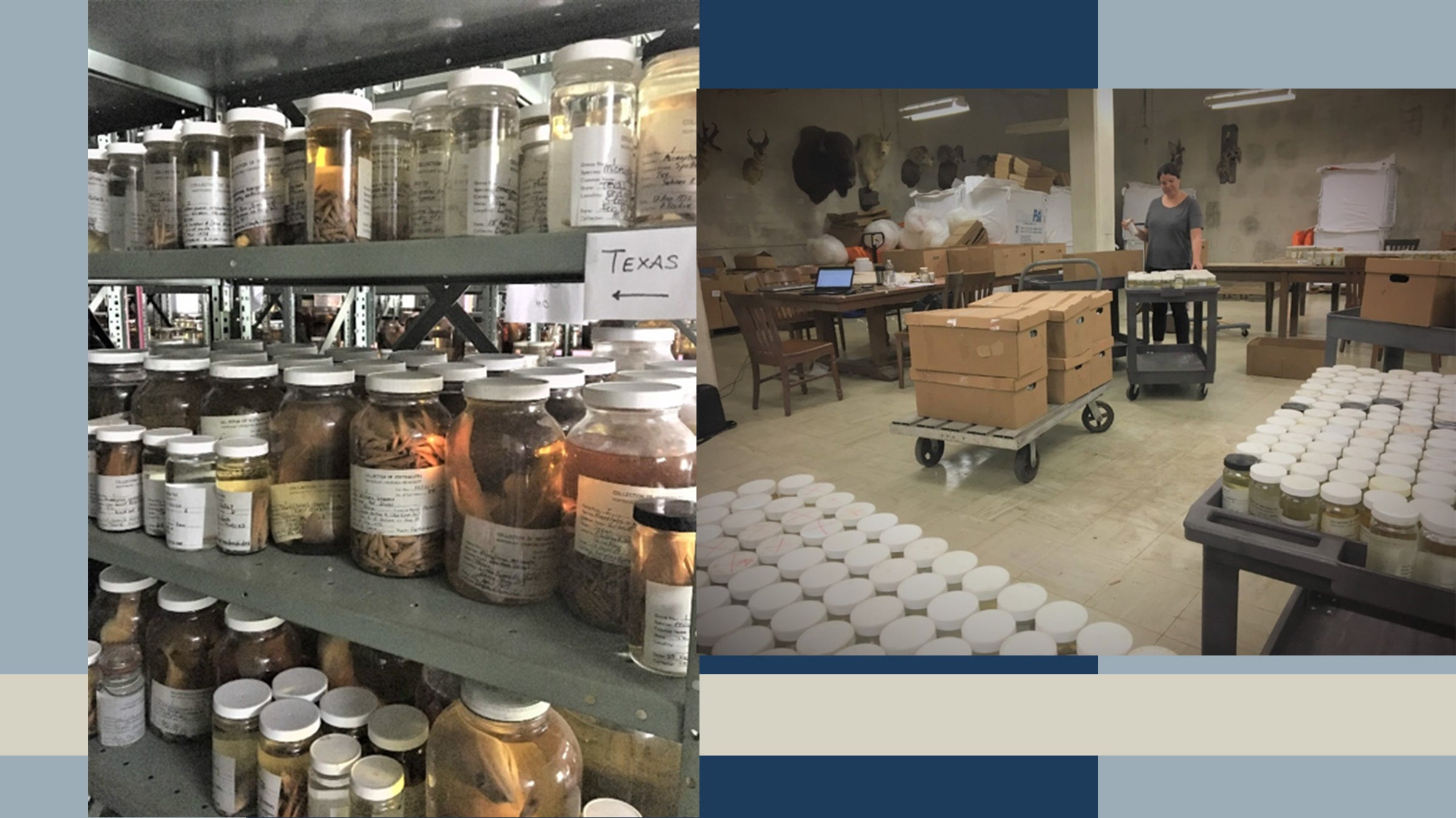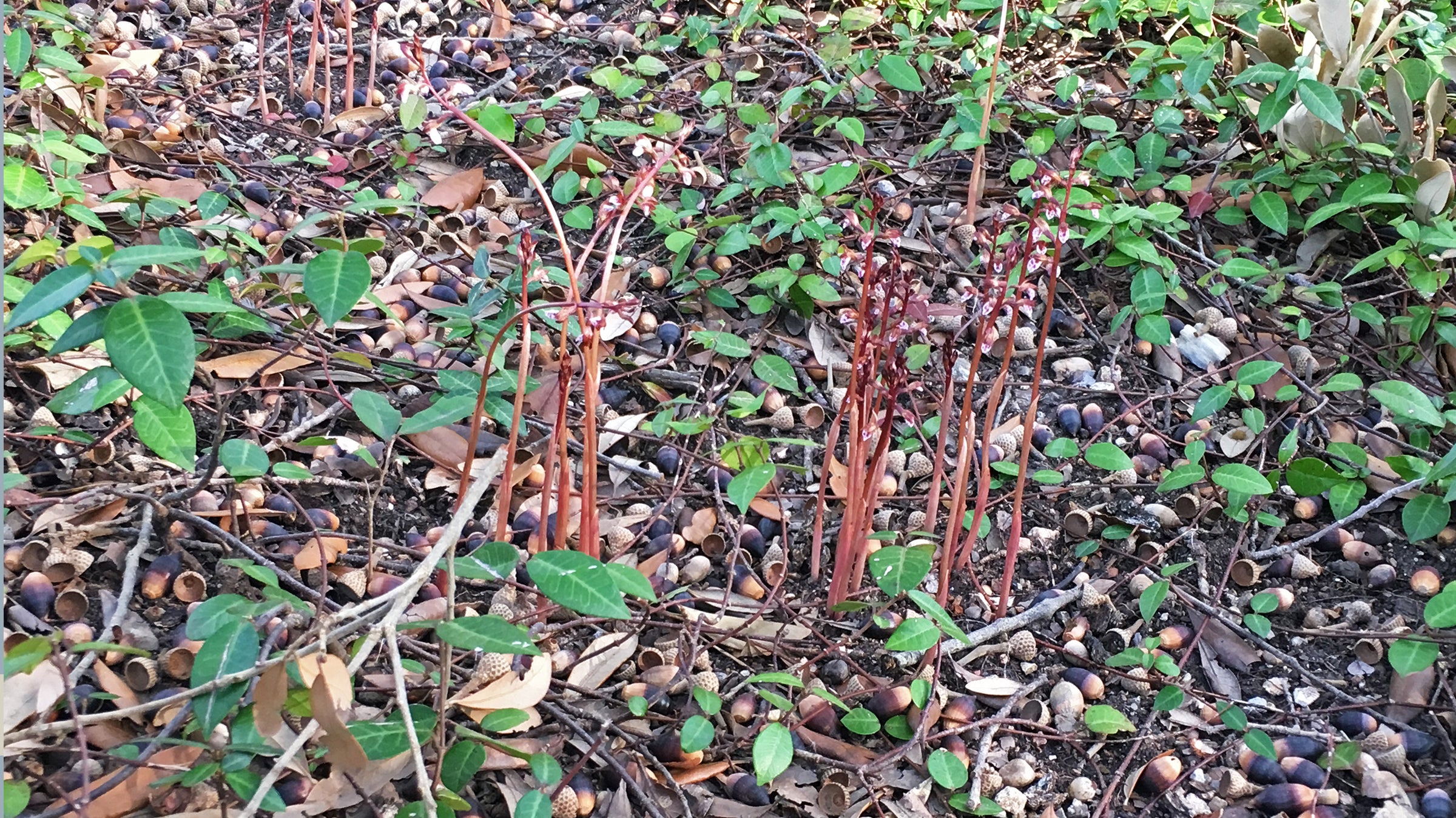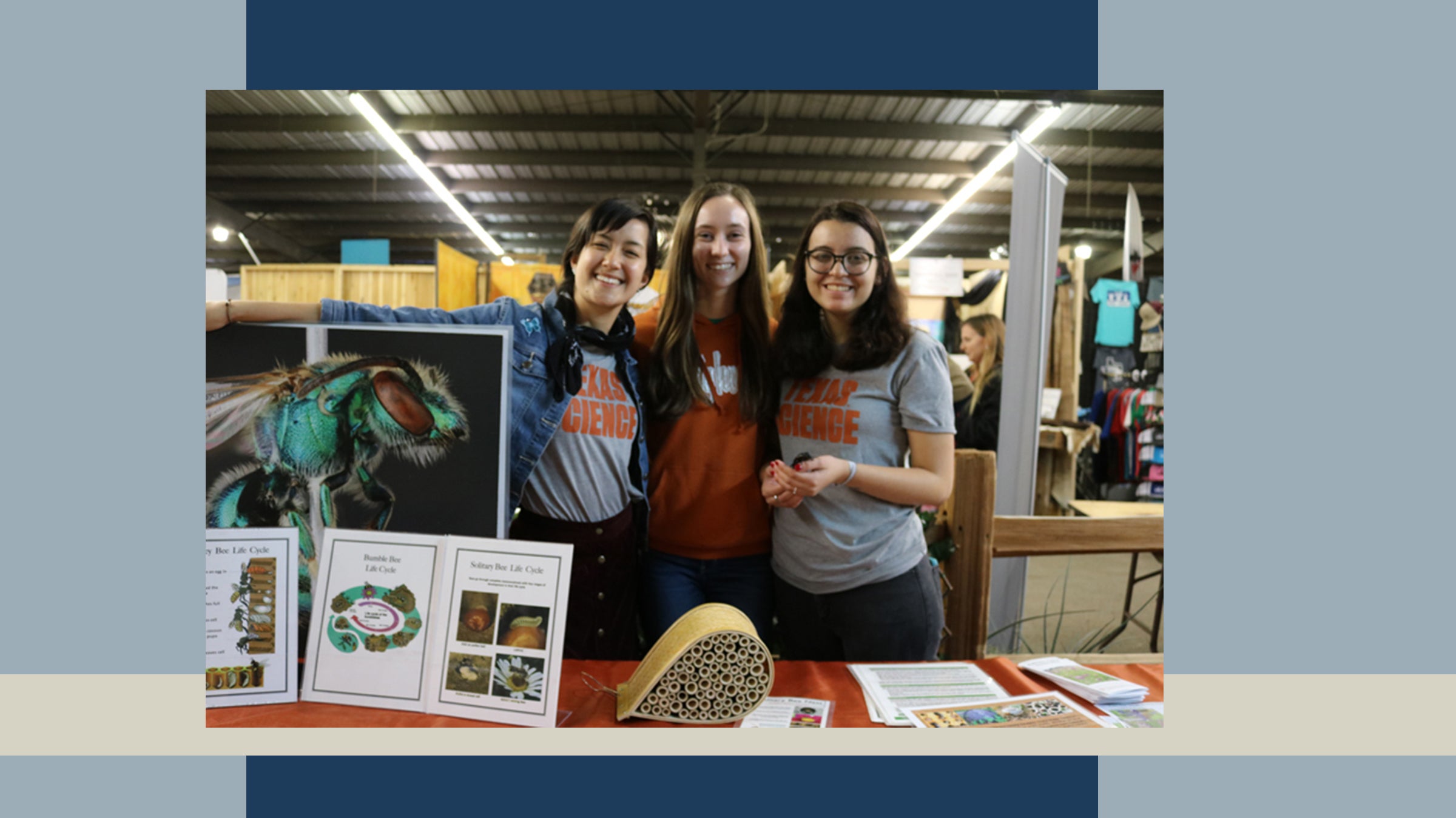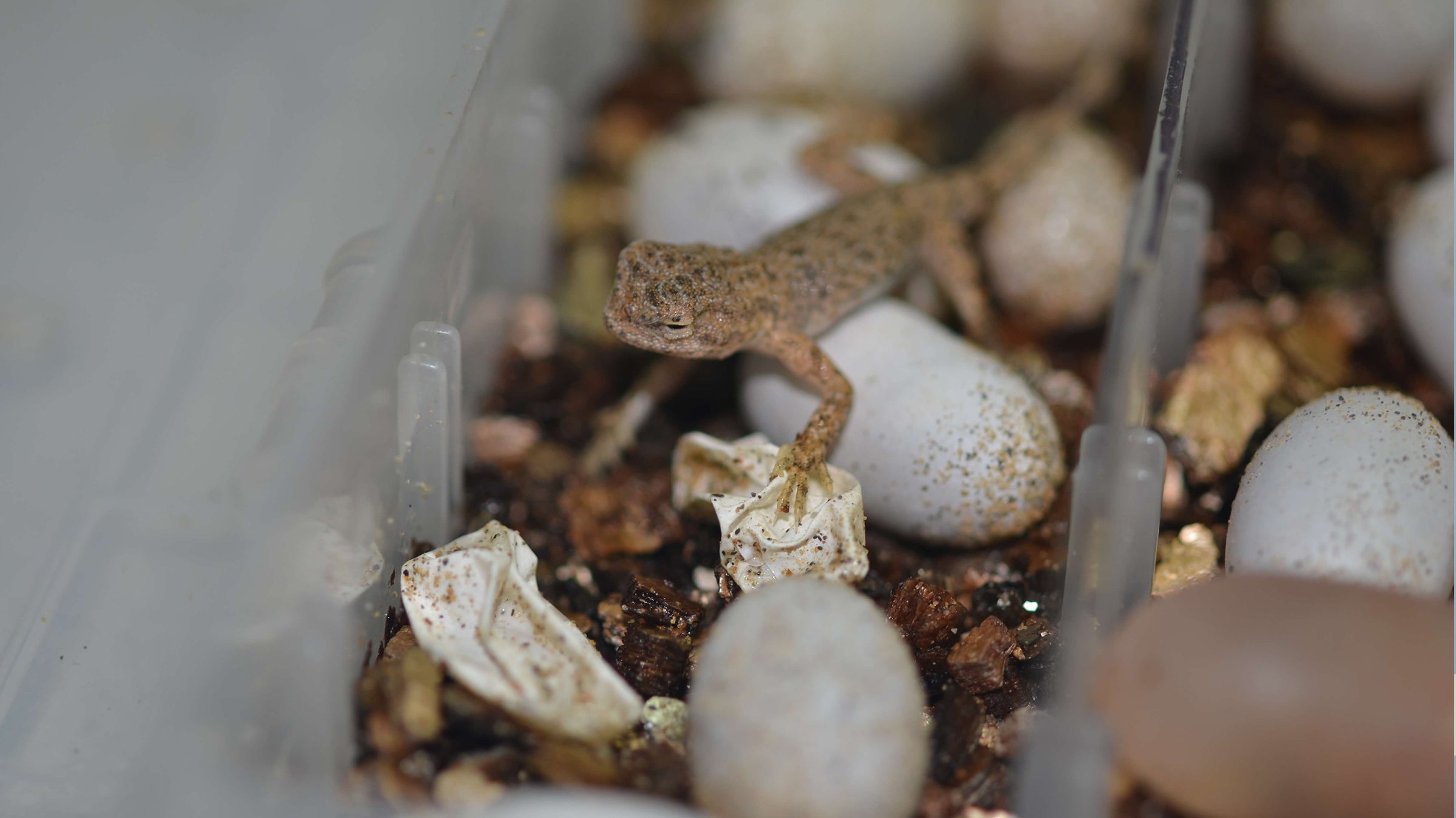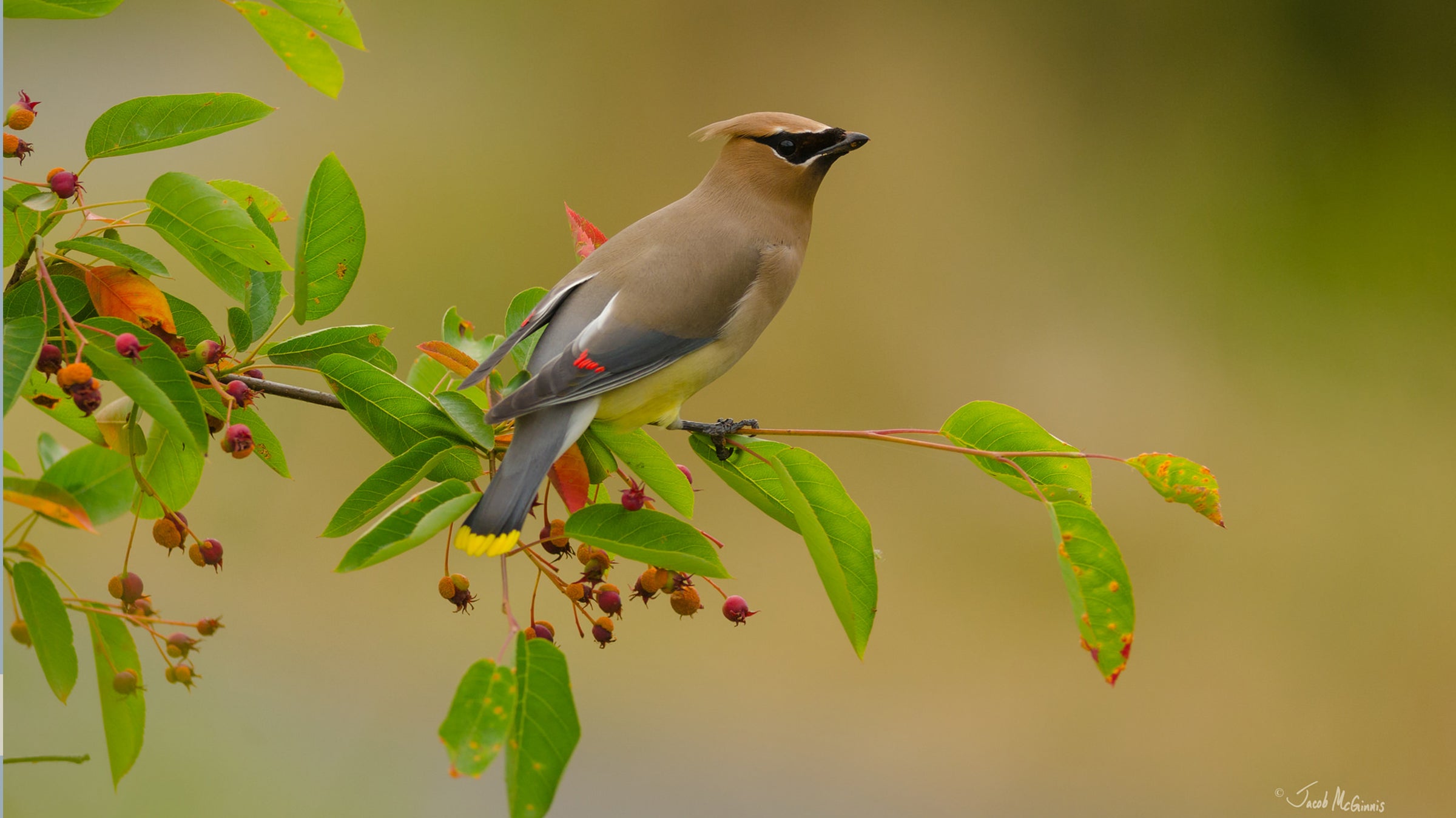News
The Texas Scientist
The Mating Game
Across the animal kingdom, males and females of the same species are often locked in an evolutionary battle of the sexes.

UT News
In Singing Mice, Scientists Find Clue to Our Own Rapid Conversations
UT Austin researchers have identified a brain circuit in mice that might enable the high-speed back and forth of human conversation.

All in the (Scientific) Family
Scientists often talk about the people who mentored them, and the students and postdocs they supervise, in ways that sound like a family.


